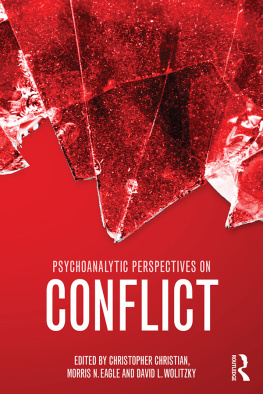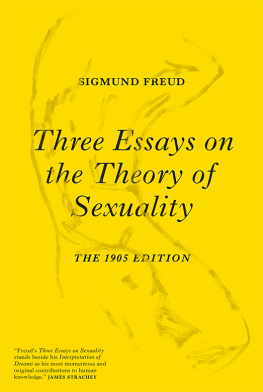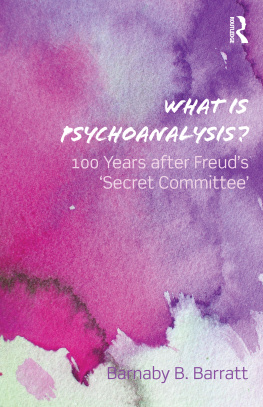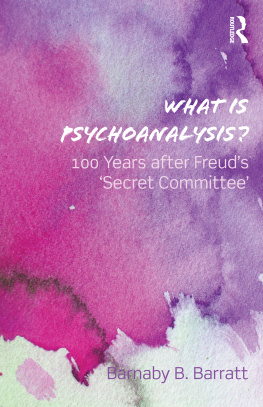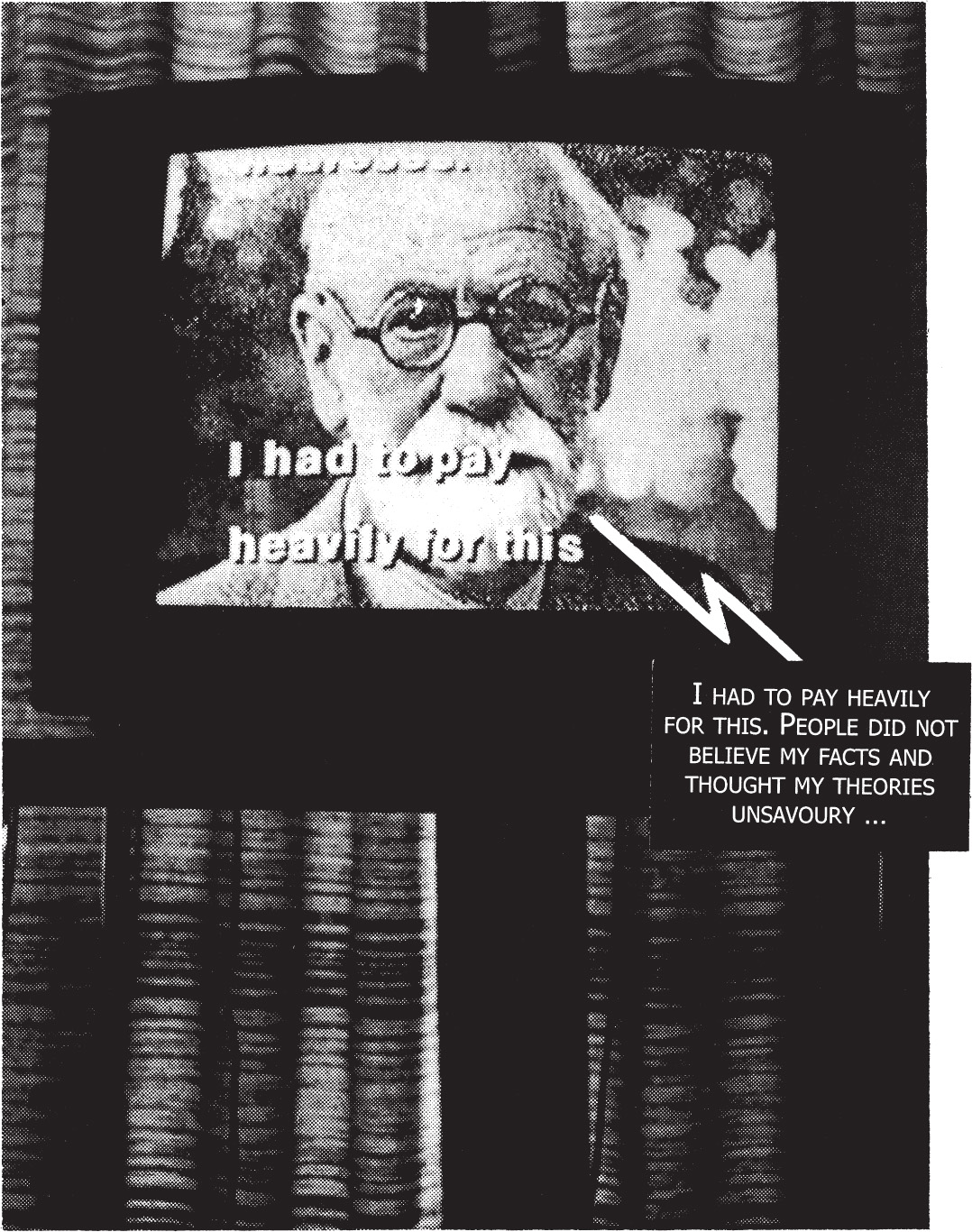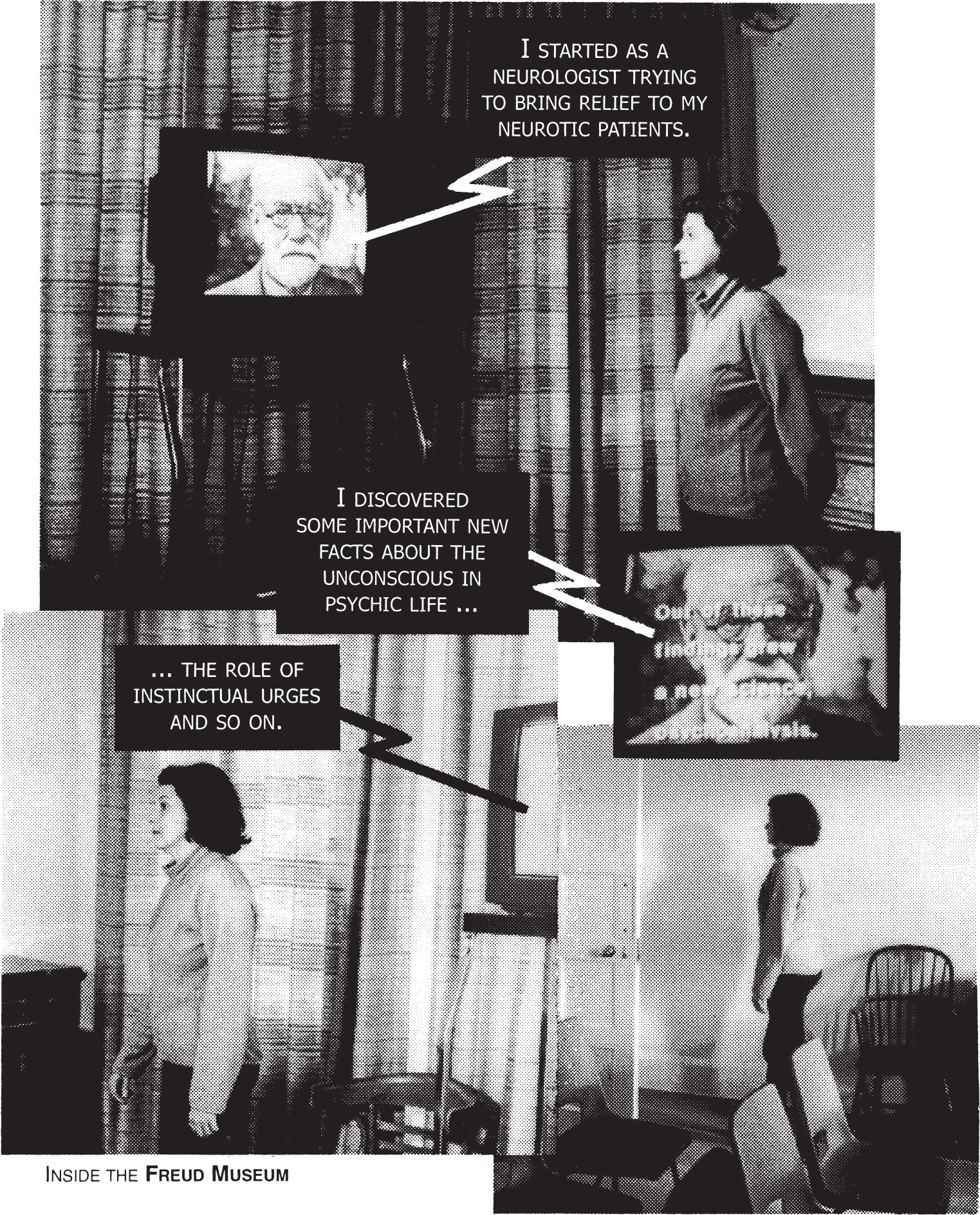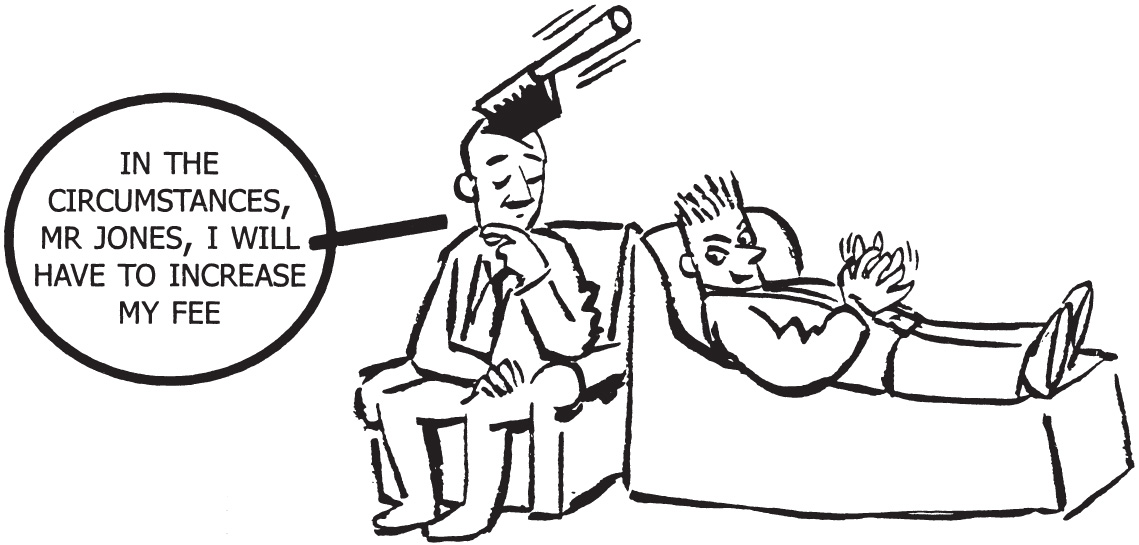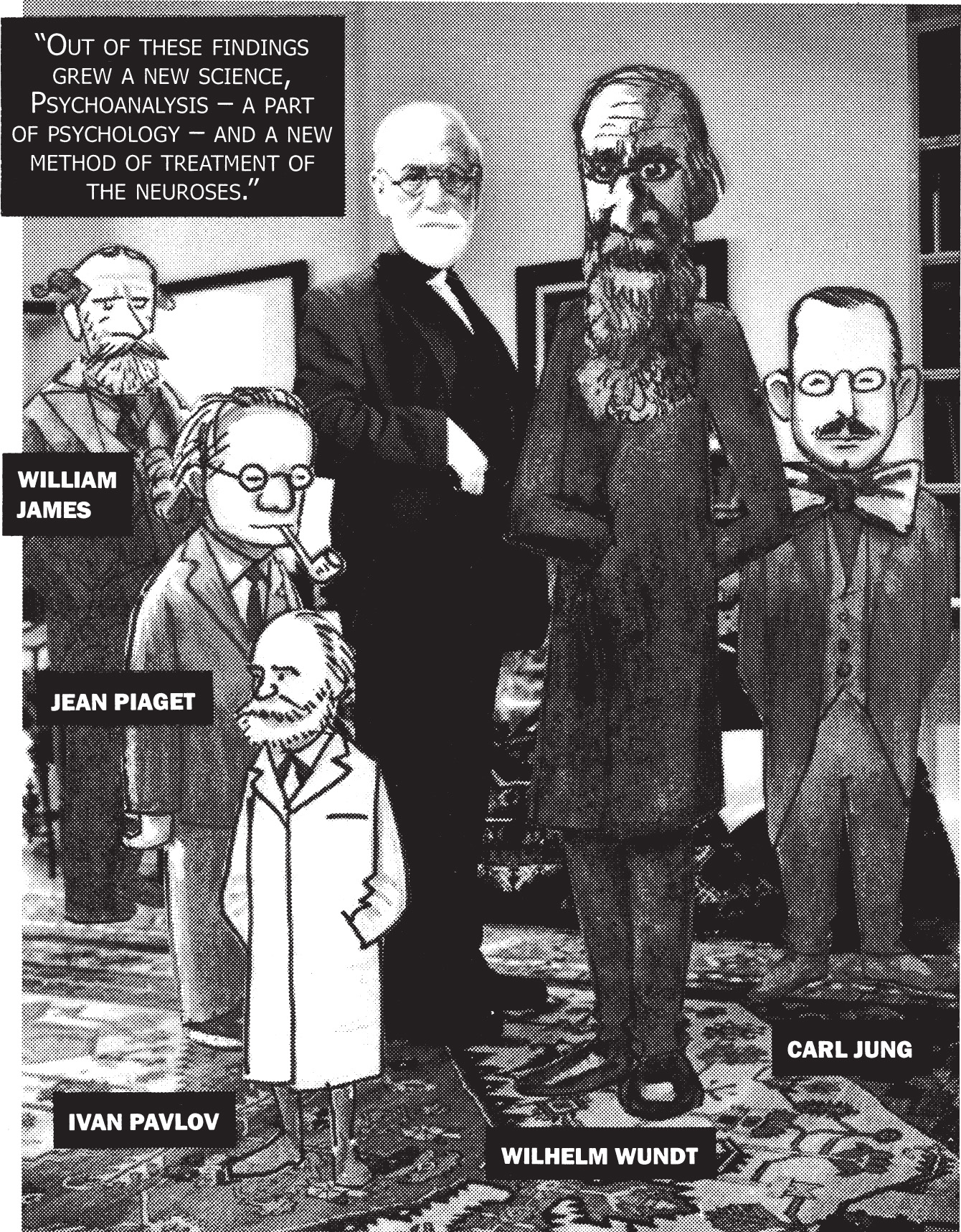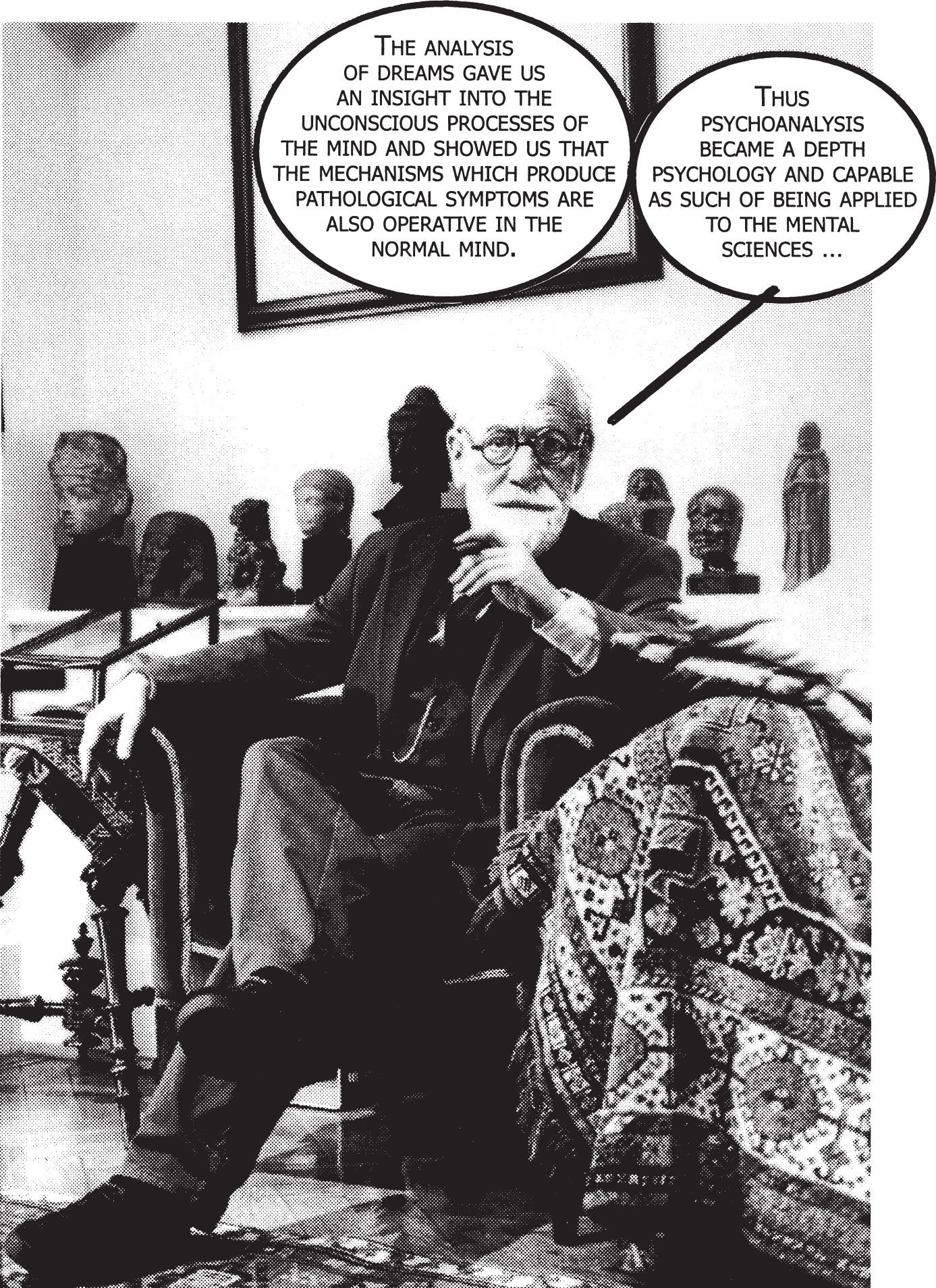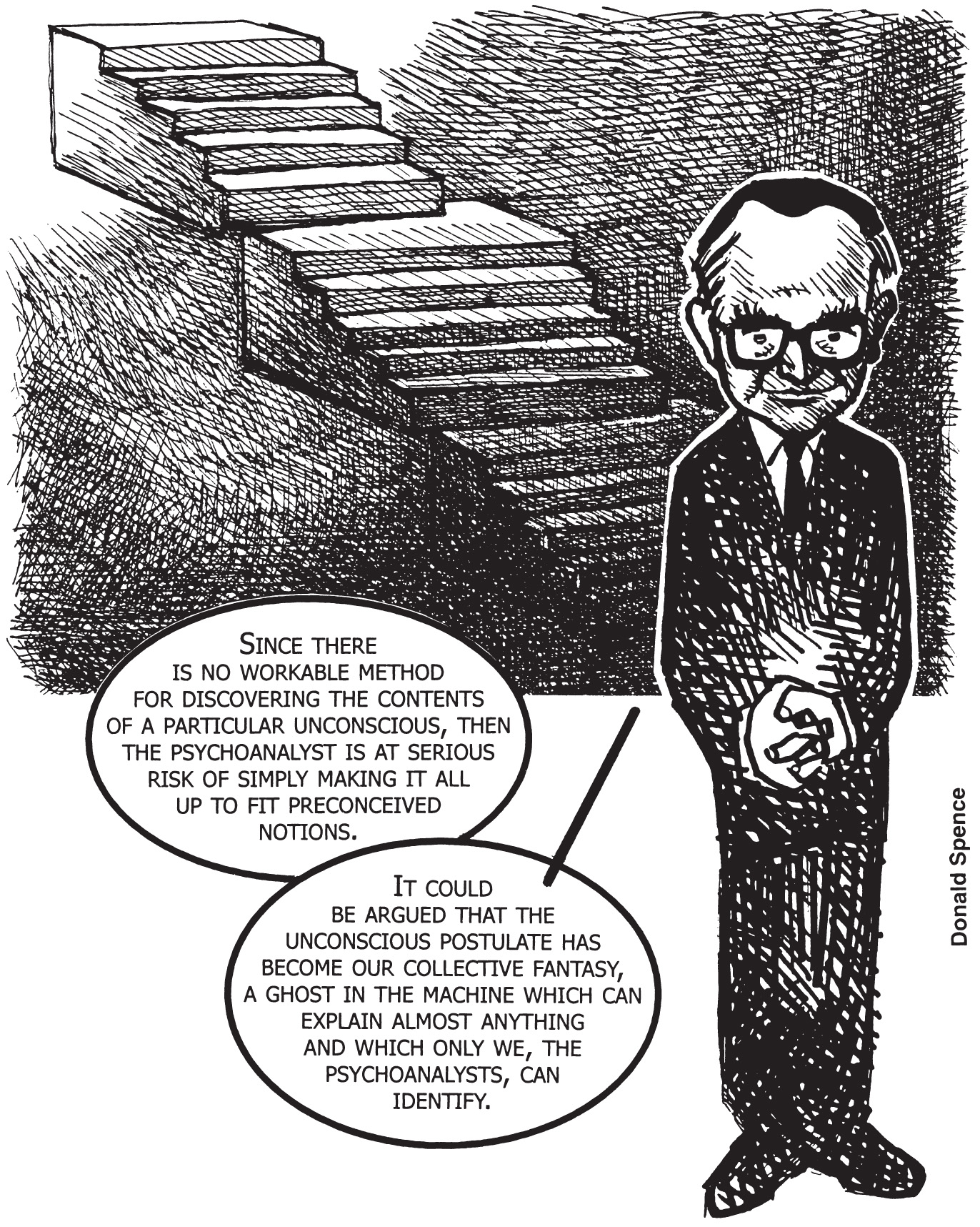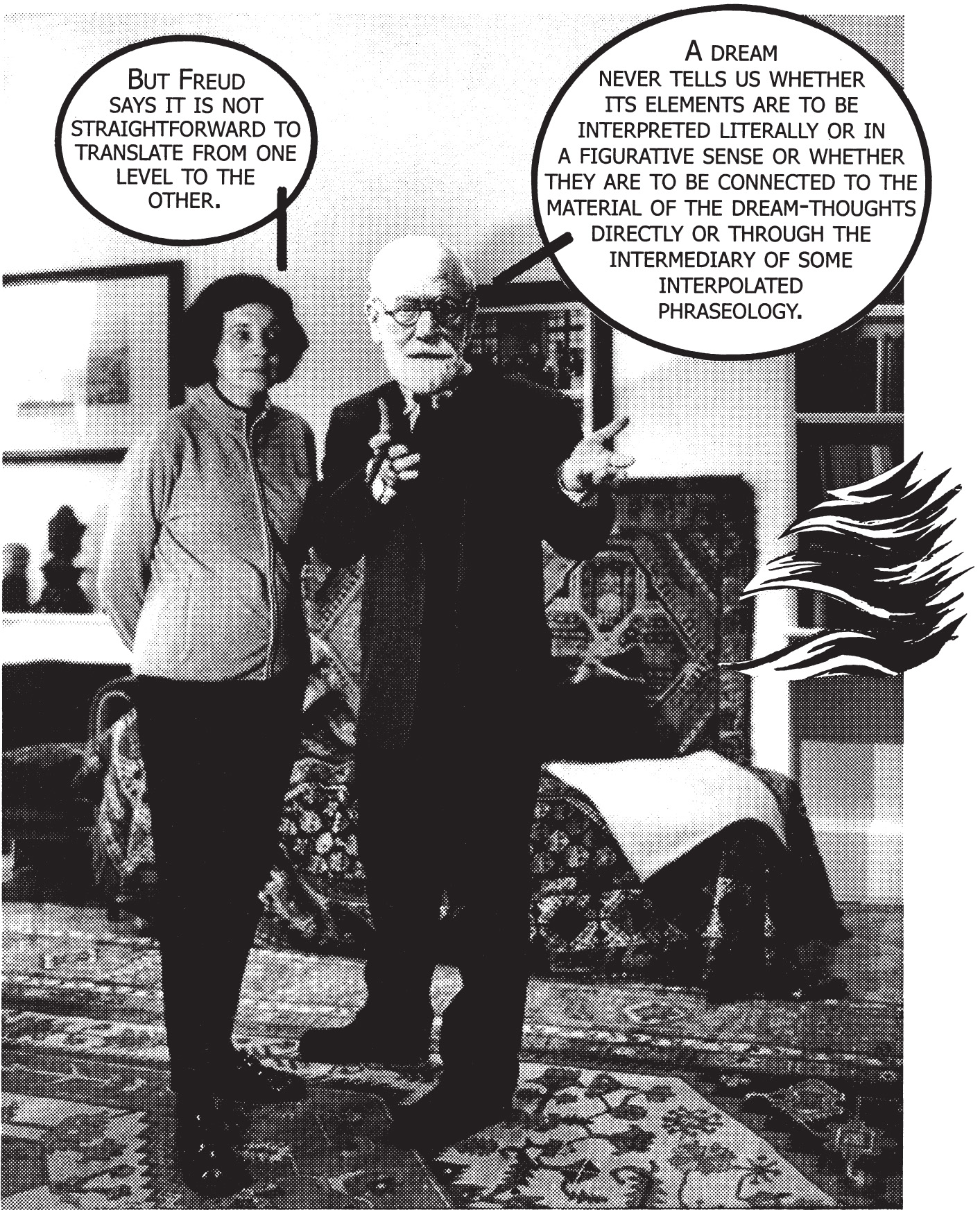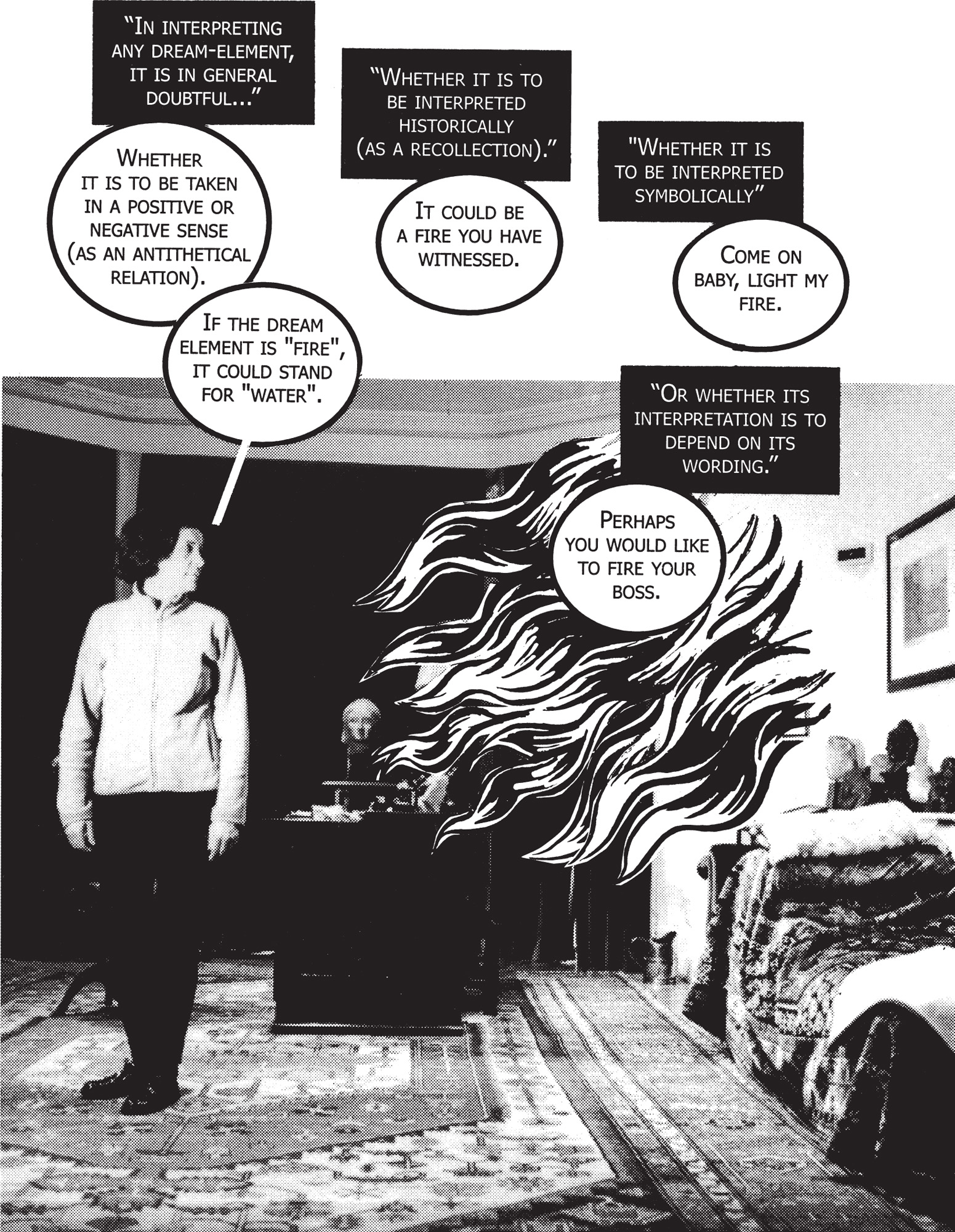Published by Icon Books Ltd, Omnibus Business Centre, 39-41 North Road, London N7 9DP
Email:
www.introducingbooks.com
ISBN: 978-184831-210-4
Text copyright 2000 Ivan Ward
Illustrations copyright 2013 Icon Books Ltd
The author and illustrator has asserted their moral rights
Originating editor: Richard Appignanesi
No part of this book may be reproduced in any form, or by any means, without prior permission in writing from the publisher.
Contents
What is Psychoanalysis?
Psychoanalysis is a theory of the human mind, a therapy for mental distress, an instrument of research, and a profession. A complex intellectual, medical and sociological phenomenon.
It was conceived in the late 1890s by the Austrian physician Sigmund Freud (18561939), who is still the figure most closely associated with the subject and most often attacked by critics.
I HAD TO PAY HEAVILY FOR THIS. PEOPLE DID NOT BELIEVE MY FACTS AND THOUGHT MY THEORIES UNSAVOURY
Freud was forced to leave his home in Vienna when Nazi Germany annexed Austria in 1938. He emigrated with his family to London, England, in June of that year. And it was there, at 20 Maresfield Gardens, in December 1938, less than a year before his death, that Freud broadcast a statement for the BBC. He summarized his lifes work and the history of psychoanalysis.
I STARTED AS A NEUROLOGIST TRYING TO BRING RELIEF TO MY NEUROTIC PATIENTS. I DISCOVERED SOME IMPORTANT NEW FACTS ABOUT THE UNCONSCIOUS IN PSYCHIC LIFE THE ROLE OF INSTINCTUAL URGES AND SO ON.
Today we are familiar with psychoanalysis from all the jokes and cartoon images that take some knowledge of it for granted.
IN THE CIRCUMSTANCES, MR JONES, I WILL HAVE TO INCREASE MY FEE
Many of its concepts have become everyday cultural currency: Freudian slip, wish fulfilment, Oedipus Complex, libido, dream symbolism, sexual stages, oral and anal personalities, ego, id and superego, repression and the unconscious.
Psychoanalysis is more than a particular set of concepts and therapeutic procedures. For good or ill, it has become, as W.H. Auden wrote, a whole climate of opinion. It has given us a way to understand the irrational in human life as consistent with what we know of the rational. It has elucidated the importance of sexuality in human motivation. It has shown that psychological events have hidden meanings. It has emphasized the fundamental importance of childhood. It has recognized psychic conflict and mental pain as an inescapable part of the human condition.
It can truly be said that psychoanalysis has transformed the way we see ourselves in modern Western societies.
WE NO LONGER ASSUME THAT WE ARE TRANSPARENT TO OURSELVES.
A Part of Psychology
OUT OF THESE FINDINGS GREW A NEW SCIENCE, PSYCHOANALYSIS A PART OF PSYCHOLOGY AND A NEW METHOD OF TREATMENT OF THE NEUROSES.
Psychoanalysis is part of psychology. Some key psychologists are pictured with Freud. Brief sketches of their contributions can be found at the end of this book on , along with the psychoanalysts named in the text. For Freud, psychoanalysis is about memories, thoughts, feelings, phantasies, intentions, wishes, ideals, beliefs, psychological conflict, and all that stuff inside what we like to call our minds.
A Depth Psychology
Freud called psychoanalysis a depth psychology because of its assumption of an unconscious part of the mind, and because he saw it as a comprehensive theory.
THE ANALYSIS OF DREAMS GAVE US AN INSIGHT INTO THE UNCONSCIOUS PROCESSES OF THE MIND AND SHOWED US THAT THE MECHANISMS WHICH PRODUCE PATHOLOGICAL SYMPTOMS ARE ALSO OPERATIVE IN THE NORMAL MIND. THUS PSYCHOANALYSIS BECAME A DEPTH PSYCHOLOGY AND CAPABLE AS SUCH OF BEING APPLIED TO THE MENTAL SCIENCES
The metaphor of depth implies a stratified concept of the mind, one layer laid upon another. It is often assumed that the deeper the level, the more primitive and dangerous the contents.
In this model, the analysts role is to translate conscious thoughts, feelings, phantasies and behaviour into their unconscious antecedents (and supposed determinants). The patient says: Youve changed your curtains. The analyst says: Youre only saying that because you love your mother. Not all psychoanalysts agree with this assumption of depth.
SINCE THERE IS NO WORKABLE METHOD FOR DISCOVERING THE CONTENTS OF A PARTICULAR UNCONSCIOUS, THEN THE PSYCHOANALYST IS AT SERIOUS RISK OF SIMPLY MAKING IT ALL UP TO FIT PRECONCEIVED NOTIONS. IT COULD BE ARGUED THAT THE UNCONSCIOUS POSTULATE HAS BECOME OUR COLLECTIVE FANTASY, A GHOST IN THE MACHINE WHICH CAN EXPLAIN ALMOST ANYTHING AND WHICH ONLY WE, THE PSYCHOANALYSTS, CAN IDENTIFY.
The Dream Work
In Freuds The Interpretation of Dreams (1900), the metaphor of depth is reproduced in the distinction between the manifest content of the dream and the unconscious latent content. Linking the two is a system of transformations the dream work. Interpretation turns the strange and alien manifest dream into something with psychical meaning an unconscious wish that the subject is attempting to express.
BUT FREUD SAYS IT IS NOT STRAIGHTFORWARD TO TRANSLATE FROM ONE LEVEL TO THE OTHER. A DREAM NEVER TELLS US WHETHER ITS ELEMENTS ARE TO BE INTERPRETED LITERALLY OR IN A FIGURATIVE SENSE OR WHETHER THEY ARE TO BE CONNECTED TO THE MATERIAL OF THE DREAM-THOUGHTS DIRECTLY OR THROUGH THE INTERMEDIARY OF SOME INTERPOLATED PHRASEOLOGY.
IN INTERPRETING ANY DREAM-ELEMENT, IT IS IN GENERAL DOUBTFUL WHETHER IT IS TO BE TAKEN IN A POSITIVE OR NEGATIVE SENSE (AS AN ANTITHETICAL RELATION). IF THE DREAM ELEMENT IS FIRE, IT COULD STAND FOR WATER. WHETHER IT IS TO BE INTERPRETED HISTORICALLY (AS A RECOLLECTION). IT COULD BE A FIRE YOU HAVE WITNESSED. WHETHER IT IS TO BE INTERPRETED SYMBOLICALLY COME ON BABY, LIGHT MY FIRE. OR WHETHER ITS INTERPRETATION IS TO DEPEND ON ITS WORDING. PERHAPS YOU WOULD LIKE TO FIRE YOUR BOSS.



